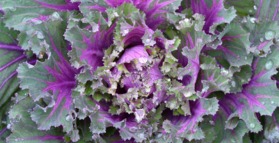 Carotenoids reduce stress
Carotenoids reduce stress
Posted on Tue, 13 Jun 17

Brightly colored pigments that naturally occur in foods, known as carotenoids, have been shown to reduce stress hormones and improve emotional health.
Carotenoids are a large class of over 750 yellow, orange, and red pigments synthesized by plants. The most commonly consumed carotenoids are α-carotene, β-carotene, β-cryptoxanthin, lutein, zeaxanthin, and lycopene.
A sub-group of carotenoids called the xanthophylls include dietary lutein and zeaxanthin as well as meso-zeaxanthin, which is a metabolite of lutein [1].
The xanthophylls selectively accumulate in your brain and have been coined “neuro-pigments” due to associations between higher dietary intakes and better neurological health [2].
To directly asses the effects of xanthophylls on the nervous system and emotional health a double-blind, placebo-controlled trial was conducted in which a group of young adults took 13 mg or 27 mg of a mixture of lutein and zeaxanthin (10.8-22.3 mg and 2.2-4.7 mg, respectively).
After 6-months those who took the carotenoids significantly reduced blood levels of the stress hormone cortisol, reduced symptoms of anxiety, depression and stress and improved measures of overall physical health. And over a further six months these benefits were either maintained or continued to improve.
This remarkable study suggests that food sources of lutein and zeaxanthin, the most important of which are green leafy vegetables, play an important role in maintaining stress resilience and emotional health.
It is possible that these results are simply due to the supplementation raising serum lutein and zeaxanthin up to an optimal level, hypothesised the authors, who point out that typical intakes are only a “paltry” 1.5 mg daily.
“At such low levels of consumption, the body may use any available carotenoid for more immediate, systemic purposes (e.g. inflammation, or oxidative stress) rather than depositing it in tissues such as the retina or brain (where our data suggest stress-reducing effects),” they propose. A cup of cooked spinach or kale typically contains 25-30 mg.
References:
- Widomska J, Zareba M, Subczynski WK. Can Xanthophyll-Membrane Interactions Explain Their Selective Presence in the Retina and Brain? Foods. 2016 Jan 12;5(1).
- Walk AM, Khan NA, Barnett SM, et al. From neuro-pigments to neural efficiency: The relationship between retinal carotenoids and behavioral and neuroelectric indices of cognitive control in childhood. Int J Psychophysiol. 2017 May 19;118:1-8.
- Stringham NT, Holmes PV, Stringham JM. Supplementation with macular carotenoids reduces psychological stress, serum cortisol, and sub-optimal symptoms of physical and emotional health in young adults. Nutr Neurosci. 2017 Feb 15:1-11.
Tags: Carotenoids, Stress, Cortisol, Anxiety, Depression, Mood




